Having a will prepared is one of the best ‘adulting’ things you can do for your family. But you are not sure where to begin and haven’t a clue what all the legal jargon means. That should not deter you from the task. Selecting a qualified attorney who can explain all the details will allow you to make intelligent decisions on behalf of yourself and your family.
You can get a jump on the meeting with you attorney by browsing through the basic definitions of terms that will be used in the preparation of your will.
Beneficiary
A beneficiary is someone specified in any legal document such as a will, trust, insurance policy, bank accounts that will benefit (inherit) property or money upon the death of the owner of the document
Bequeath
Means ‘to give’. To bequeath someone is to leave property to something when someone dies.
Bequest
Giving an item as a gift (not real estate) at the time of death.
Bond
A type of policy that insures the inheritors in case there are issues with the admins or executors of the estate.
Custodian
If one of the inheritors are a minor, a custodian is named to handle the property, in accordance with the Uniform Transfers to Minors Act.
Devise
Real estate given at death. A Devisee is the person who inherits the real estate property by virtue of a will.
Executor
The individual selected to handle the affairs of the deceased person. This person is appointed after the will’s creator dies by the probate court.
Estate Tax/Gift Tax
The federal government and some states impose taxes on very large estates either while the individual is alive or after their death.
Grantor
The creator of a trust.
Heir
If there is not a will in place, this person inherits the property under laws specified in their particular state..
Inheritance Tax
There are only a few states where a tax is levied on individuals who inherit property. Even then, in most states, close family members do not have to pay this tax. The federal government does not charge an inheritance tax.
Real Property
Houses, land and anything attached permanently to the land
Revocable Trust
The owner or maker of this type of trust can make changes at any time during the individual’s lifetime.
Tangible Property
Things that can be physically touched – as opposed to ‘intangible’ items such as stock certificates.
Testator
The originator and singer of the will.
Trustee
An individual selected to have authority (legally) to oversee the trust’s assets.
Do not be intimidated by the legalese use by many attorneys. If you do not completely understand a term or concept, ask for further explanations. It is important that you comprehend all the legal implications of creating a will and what happens when it has be be executed. Your wishes need to be clearly conveyed so that when the time comes, your family is taken care of exactly as you have instructed. Having a properly prepared will can offer piece of mind and answer a lot of the ‘what ifs’ we often contemplate.


